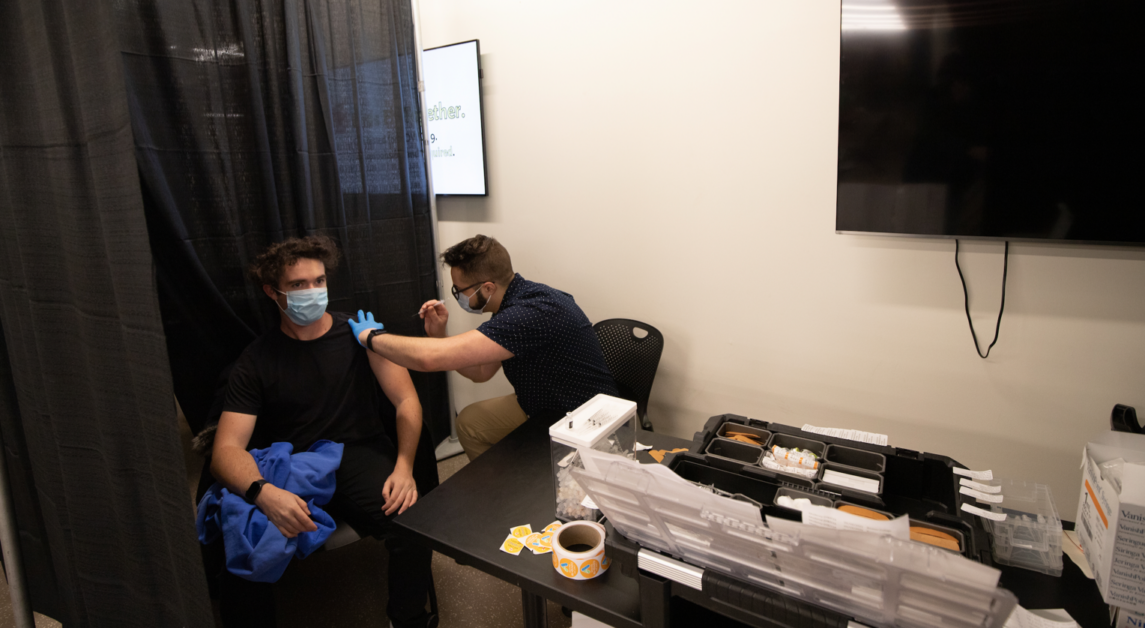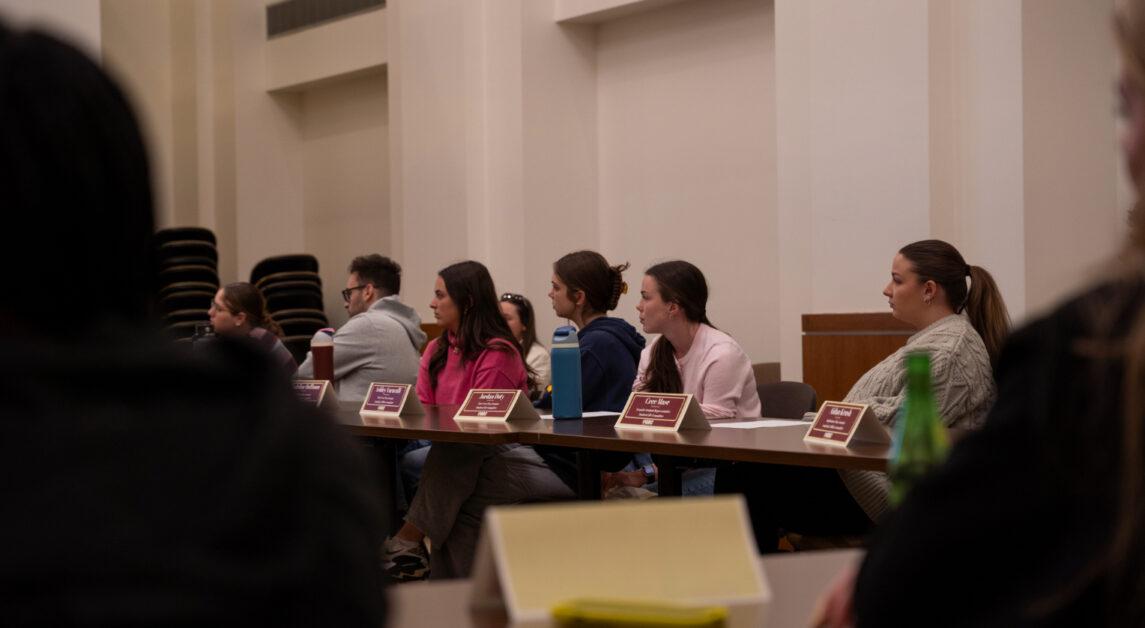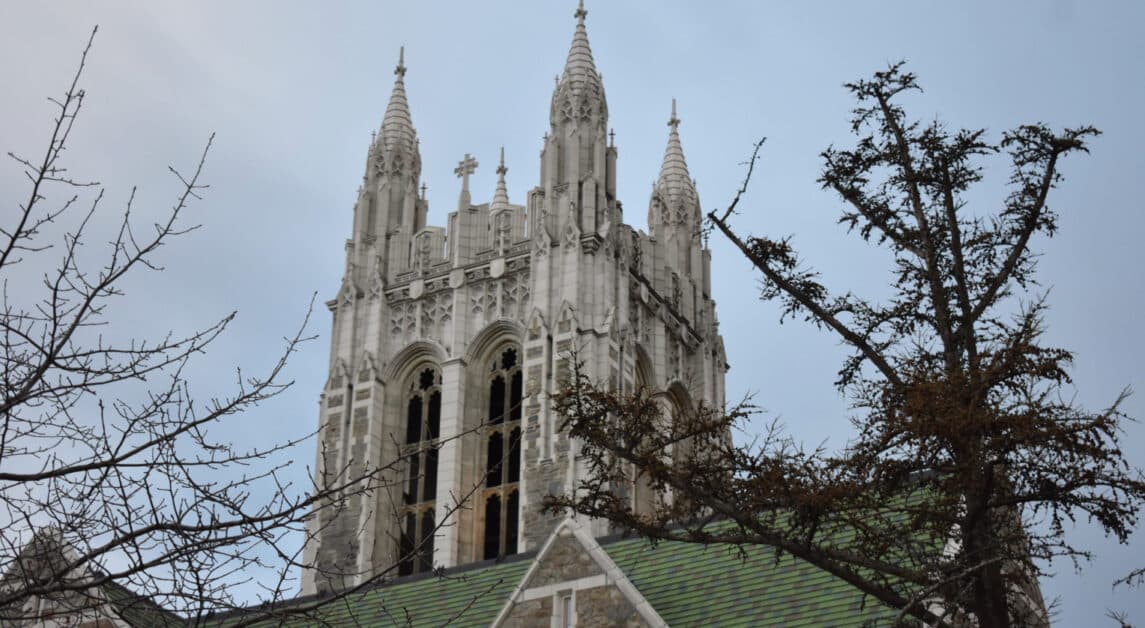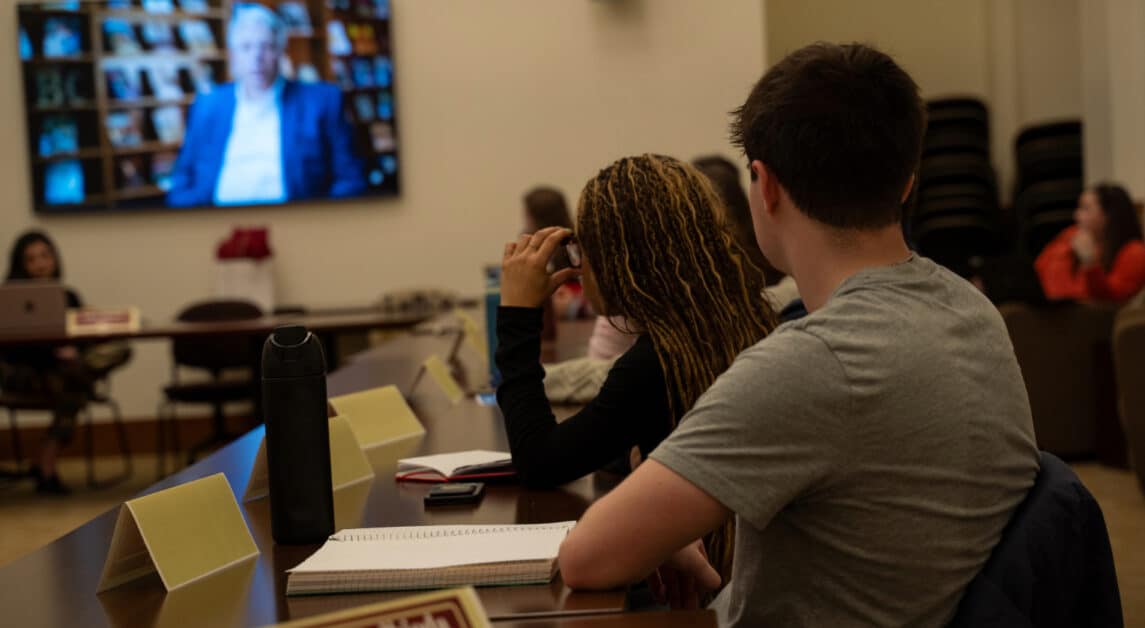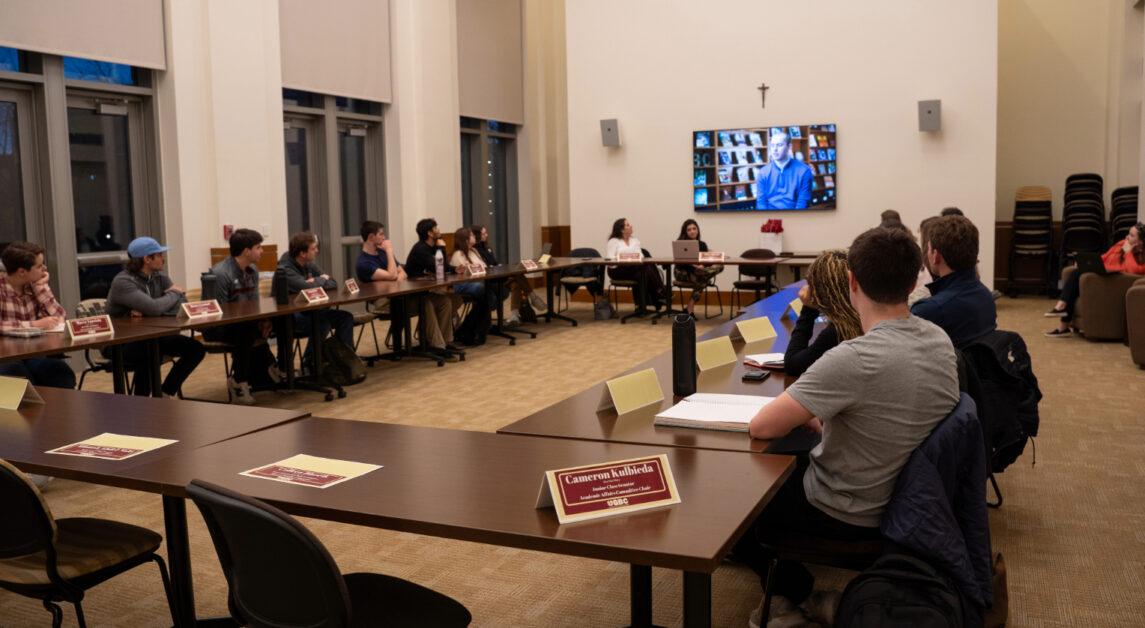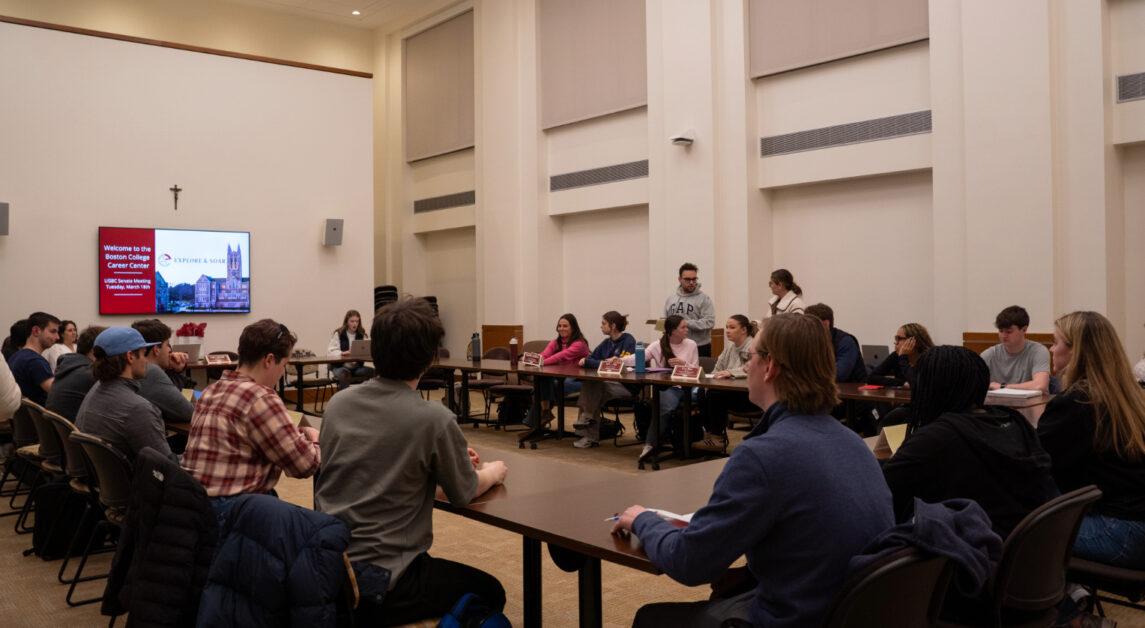A petition urging Boston College to allow four exemptions to its vaccination booster mandate claims there are “very serious safety concerns” with the University policy. The petition has garnered 830 signatures as of Sunday.
Hooman Noorchashm, the author of the petition and the parent of a current BC student, said the driving force behind the petition was BC parents who approached him with their concerns about the mandate.
“There are specific populations of people who need a very clear off-ramp,” Noorchashm said. “That would be safe and would be rational, clinically and ethically. And I think that BC, if they really sort of looked at [the petition] carefully, they would see that it’s quite reasonable.”
Associate Vice President for University Communications Jack Dunn stated that the University stands behind its COVID-19 policy.
“Boston College is resolute in its COVID-19 plan, which we believe is the best approach to protect the health and wellbeing of the University community,” Dunn wrote in an email to The Heights.
The petition drew attention from outside the BC community when Robert F. Kennedy Jr., the nephew of former President John F. Kennedy, tweeted about the petition on Jan. 7. Kennedy has been outspoken against vaccines in the past.
When Kennedy saw the petition about BC’s mandate, Noorchashm said he was asked to write an article for Children’s Health Defense—a nonprofit Kennedy founded known for advocating against vaccines.
Similar petitions have emerged at other universities, including Northeastern University and Villanova University, with many citing Noorchashm’s letter and several of them forming the No B.S. College Coalition against Booster Mandates.
Proposed exemptions in the petition include fully vaccinated individuals with “hybrid immunity” who have had a natural COVID-19 infection and fully vaccinated individuals who had a breakthrough case of Delta or Omicron over Winter Break.
Other exemptions listed in the petition are for individuals whose second dose of the mRNA vaccine was less than six months ago—BC’s policy allows a six-month window between when students received their last vaccine dose and the booster shot—and individuals who had a licensed physician evaluate their immunity and conclude they have “robust and protective” COVID-19 immunity.
Noorchashm, a physician in Pennsylvania who was previously a resident at Brigham and Women’s Hospital, argues that vaccinating such people is medically unnecessary and could only risk potentially serious harm.
Peter Ireland, a professor in the economics department at BC, said that though he was happy to comply with the vaccine mandate over the summer, he now questions the effectiveness of the vaccine, which led him to sign the petition.
“Over the course of the last month or two, I think it’s become clear that the vaccine helps with symptoms but doesn’t really stop infection and contagion,” Ireland said.
Vaccines and boosters provide around 98 percent protection from hospitalization and death from COVID-19, according to Philip Landrigan, epidemiologist and the director of BC’s global public health program.
“So even though it doesn’t keep people from getting a respiratory infection, it is amazingly effective at keeping people out of the hospital and out of the grave,” Landrigan said.
According to Welkin Johnson, chair of BC’s biology department, virologist, and the parent of a current BC student, people should be more concerned about the possible consequences of COVID-19 infection as opposed to the vaccine or booster, as there’s no evidence of the booster causing serious harm.
“One is a shot that leaves the body within a matter of hours or days,” Johnson said. “No trace of it is left. What is left behind is the memory of that viral protein. The other is a virus that replicates in your tissues and kills cells.”
Bob Hymans, the parent of a current BC student, a member of BC Parents Leadership Council, and BC ’93, signed the petition and said he does not want to expose his son to a potentially harmful booster.
“It completely echoed my sentiments and the feelings that I have that, you know, we don’t want to put our children in harm’s way by any means,” Hymans said.
The petition states that giving a booster to recently infected people who have been previously vaccinated might risk “a dangerous hyperinflammatory response.”
According to Landrigan and Johnson, there is no proof of the booster triggering a “hyperinflammatory response,” as the petition claims.
“It may be somebody’s opinion, but there’s no evidence,” Landrigan said.
Ireland said he believes that ethically, people should be given a choice about receiving a booster.
“I just feel, especially given that there are risks on both sides, really, really uncomfortable about the idea that you mandate that someone doesn’t want a medical treatment to accept that medical treatment,” Ireland said.
Claims against booster vaccinations—such as the petition’s—only work at some level since, as with all medical technology, any reaction is technically possible, according to Johnson.
“Even aspirin or things that you buy at the drugstore … have a low probability of causing adverse effects,” Johnson said. “So it’s not possible … to say, absolutely, this won’t happen, but it’s extremely unlikely.”
Noorchashm is not opposed to booster shots, vaccines, or mandates broadly, but only for people who already have a robust immunity, he said.
“I’m happy to interact with anyone who needs to be reassured about getting vaccinated,” he said. “One of the things I do, for example, is that there are a lot of folks who are on the fence about getting the vaccine, and when I help them get their serologies and demonstrate to them that they have no immunity, they go get vaccinated.”
According to Johnson, it is difficult to determine whether someone has “robust and protective immunity.” Johnson also explained that these tests are not routinely done in any clinical testing or personnel care lab, and are likely expensive and difficult to obtain.
“I find this … point [in the petition] to be a little elitist, considering not everyone has access to such tests,” Johnson said.
Hannah LeBeau, co-president of BC’s Public Health Club and MCAS ’22, said the booster mandate is an important way to protect the BC community, especially with on- and off-campus gatherings set to resume for the spring semester.
“I think it’s important to try to slow down the spread or even just to try and make sure that the students who do get infected aren’t getting as sick,” LeBeau said.
Landrigan also said the goal of the University’s booster mandate is to keep the campus community safe and COVID-19 from spreading.
“My feeling here is that the booster shot is absolutely necessary for everyone who’s on the Boston College campus unless they have a bona fide medical exemption that has been reviewed and approved by University Health Services,” he said.
According to Noorchashm, the parents who have been protesting the mandate found University Health Services unreceptive.
“In general, I think the institution’s orientation is towards simplifying the equation so it’s much easier for administrators to just make one policy and have everyone adhere to it,” he said. “And I think it’s more of a liability management maneuver.”
It would be wrong for the University to dismiss this petition, according to Noorchashm, because neither the ethics nor the science is assailable. Noorchashm said BC has an opportunity to play a leadership role regarding booster mandates.
Hymans also hopes the University will listen to the petition and provide reasoning for the mandate.
“Please listen to us, say something,” Hymans said. “Tell us why you’re doing what you’re doing, because it is not due to science.”
Though he disagrees with the booster mandate, Ireland said he can appreciate the position of the decision makers on campus.
“I do think Father Leahy and other decision makers do have our interests and the institutional interests in mind,” Ireland said. “I simply respectfully disagree.”
Landrigan said it is fortunate that the BC community is 99.3 percent vaccinated, and that it should keep up with boosters to protect against COVID-19 on campus.
Johnson said his recommendation is to follow the booster mandate laid out by the University.
“I agreed with the vaccine mandate,” Johnson said. “[And] the boosters, I believe, are going to help us get as quickly as possible back to normal.”
Beth Verghese contributed to reporting.
Update 1/16/22 5:58 p.m.: This article has been updated to include Welkin Johnson’s additional titles.
Featured Image by Steve Mooney / Heights Editor

